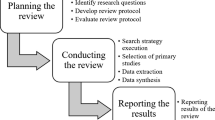Abstract
Software maintainability is a prime trait of software, measured as the ease with which new code lines can be added, obsolete ones can be deleted, and those having errors can be corrected. The significance of software maintenance is increasing in today’s digital era leading to the use of advanced machine learning (ML) algorithms for building efficient models to predict maintainability, although several baseline ML algorithms are already in use for software maintainability prediction (SMP). However, in the current study, an effort has been made to improve the existing baseline models using hyperparameter tuning. Hyperparameter tuning chooses the best set of hyperparameters for an algorithm, where a hyperparameter is that parameter that uses its value for controlling the training process. This study employs default hyperparameter tuning as well as the grid search-based hyperparameter tuning. Five regression-based ML algorithms, i.e., Random Forest, Ridge Regression, Support Vector Regression, Stochastic Gradient Descent, and Gaussian Process Regression, have been implemented using two commercial object-oriented datasets, namely QUES and UIMS for SMP. To evaluate the performance, a comparison has been made between the baseline models and the models developed after hyperparameter tuning based on the three accuracy measures, viz., R-Squared, Mean Absolute Error (MAE), and Root Mean Squared Logarithmic Error (RMSLE). The results depict that the performance of all the five baseline ML algorithms improved after applying hyperparameter tuning. This conclusion is supported by the improved R-squared, MAE, and RMSLE values obtained in this study. Best results are obtained when the grid search method is used for the tuning purpose. On average, the values of R-squared, MAE, and RMSLE measures improved by 20.24%, 12.26%, and 30.28%, respectively, for the QUES dataset. On the other hand, in the case of the UIMS dataset, an average improvement of 6.27%, 15.71%, and 16.39% has been achieved in terms of R-squared, MAE, and RMSLE, respectively.
Access this chapter
Tax calculation will be finalised at checkout
Purchases are for personal use only
Similar content being viewed by others
References
Dash Y, Dubey SK, Rana A (2012) Maintainability prediction of object oriented software system by using artificial neural network approach. 9111204392:420–423
Dubey SK, Rana A, Dash Y (2012) Maintainability prediction of object-oriented software system by multilayer perceptron model. ACM SIGSOFT Softw Eng Notes 37:1–4. https://doi.org/10.1145/2347696.2347703
Elmidaoui S, Cheikhi L, Idri A, Abran A (2019) Empirical studies on software product maintainability prediction: a systematic map** and review. E-Informatica Softw Eng J 13:141–202. https://doi.org/10.5277/e-Inf190105
Ghawi R, Pfeffer J (2019) Efficient hyperparameter tuning with grid search for text categorization using kNN approach with BM25 similarity. Open Comput Sci 9:160–180. https://doi.org/10.1515/comp-2019-0011
Gupta S, Chug A (2020) Assessing cross-project technique for software maintainability prediction. Procedia Comput Sci 167:656–665. https://doi.org/10.1016/j.procs.2020.03.332
Gupta S, Chug A (2020) Software maintainability prediction using an enhanced random forest algorithm. J Discret Math Sci Cryptogr 23:441–449. https://doi.org/10.1080/09720529.2020.1728898
Hajizadeh N, Keshtgari M, Ahmadzadeh M (2014) Assessment of classification techniques on predicting success or failure of Software reusability. CoRR abs/1409. 2:5–10
Jain A, Tarwani S, Chug A (2016) An empirical investigation of evolutionary algorithm for software maintainability prediction. In: 2016 IEEE students’ conference on electrical, electronics and computer science SCEECS 2016, pp 1–6. https://doi.org/10.1109/SCEECS.2016.7509314
Jha S, Kumar R, Hoang Son L, Abdel-Basset M, Priyadarshini I, Sharma R, Viet Long H (2019) Deep learning approach for software maintainability metrics prediction. IEEE Access 7:61840–61855. https://doi.org/10.1109/ACCESS.2019.2913349
Kaur A, Kaur K (2013) Statistical comparison of modelling methods for software maintainability prediction
Kitchenham B, MacDonell SG, Pickard L, Shepperd M (1999) Assessing prediction systems. The information science discussion paper series
Koten C, Gray AR (2006) An application of Bayesian network for predicting object-oriented software maintainability. Inf Softw Technol 48:59–67. https://doi.org/10.1016/j.infsof.2005.03.002
Laradji IH, Alshayeb M, Ghouti L (2015) Software defect prediction using ensemble learning on selected features. Inf Softw Technol 58:388–402. https://doi.org/10.1016/j.infsof.2014.07.005
Li W, Henry S (1993) Object-oriented metrics that predict maintainability. J Syst Softw 23:111–122
Maher M, Sakr S (2019) SmartML: a meta learning-based framework for automated selection and hyperparameter tuning for machine learning algorithms. Adv Database Technol. EDBT 2019-March 554–557. https://doi.org/10.5441/002/edbt.2019.54
Malhotra R, Chug A (2012) Software maintainability prediction using machine learning algorithms. Softw Eng Int J 2:19–36
Malhotra R, Chug A (2015) Application of evolutionary algorithms for software maintainability prediction using object-oriented metrics. https://doi.org/10.4108/icst.bict.2014.258044
Malhotra R, Chug A (2016) Software maintainability: systematic literature review and current trends. Int J Softw Eng Knowl Eng 26:1221–1253. https://doi.org/10.1142/S0218194016500431
Mamone S (1994) The IEEE standard for software maintenance
Mantovani RG, Rossi ALD, Vanschoren J, Bischl B, De Carvalho ACPLF (2015) Effectiveness of random search in SVM hyper-parameter tuning. In: Proceedings of the international joint conference on neural networks, Sept 2015, pp 1–8. https://doi.org/10.1109/IJCNN.2015.7280664
Mathur B, Kaushik M (2018) Data analysis utilizing principal component analysis. Int J Eng Res Technol 11:333–348
Schratz P, Muenchow J, Iturritxa E, Richter J, Brenning A (2018) Performance evaluation and hyperparameter tuning of statistical and machine-learning models using spatial data. https://doi.org/10.1016/j.ecolmodel.2019.06.002
Shekar BH, Dagnew G (2019) Grid search-based hyperparameter tuning and classification of microarray cancer data. In: 2019 2nd international conference on advanced computational and communication paradigms ICACCP 2019. https://doi.org/10.1109/ICACCP.2019.8882943
Tang M-H, Kao M-H, Chen M-H (2003) An empirical study on object-oriented metrics, pp 242–249. https://doi.org/10.1109/metric.1999.809745
Author information
Authors and Affiliations
Corresponding author
Editor information
Editors and Affiliations
Rights and permissions
Copyright information
© 2021 The Author(s), under exclusive license to Springer Nature Singapore Pte Ltd.
About this paper
Cite this paper
Lakra, K., Chug, A. (2021). Improving Software Maintainability Prediction Using Hyperparameter Tuning of Baseline Machine Learning Algorithms. In: Choudhary, A., Agrawal, A.P., Logeswaran, R., Unhelkar, B. (eds) Applications of Artificial Intelligence and Machine Learning. Lecture Notes in Electrical Engineering, vol 778. Springer, Singapore. https://doi.org/10.1007/978-981-16-3067-5_51
Download citation
DOI: https://doi.org/10.1007/978-981-16-3067-5_51
Published:
Publisher Name: Springer, Singapore
Print ISBN: 978-981-16-3066-8
Online ISBN: 978-981-16-3067-5
eBook Packages: Computer ScienceComputer Science (R0)




